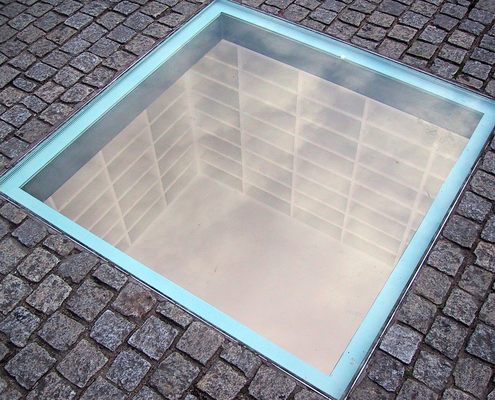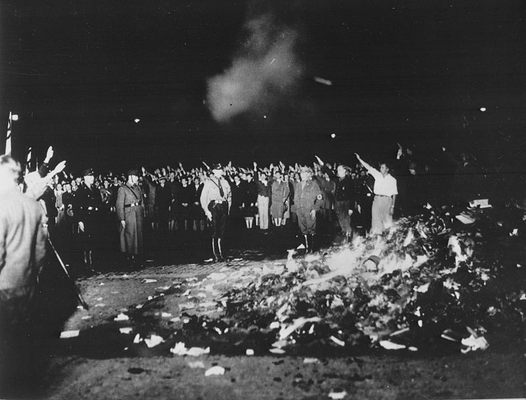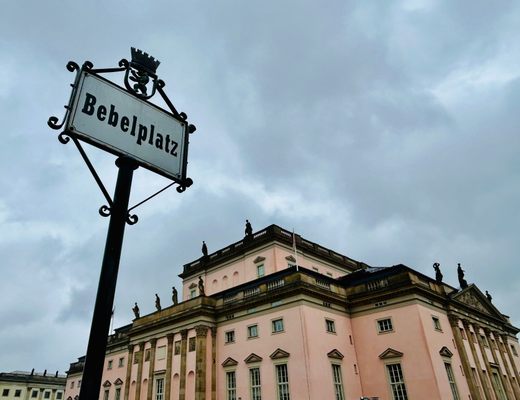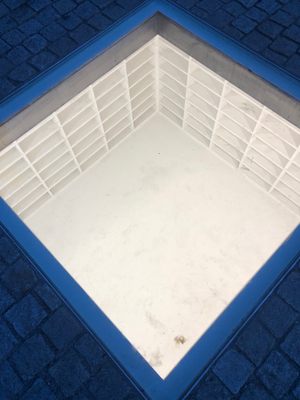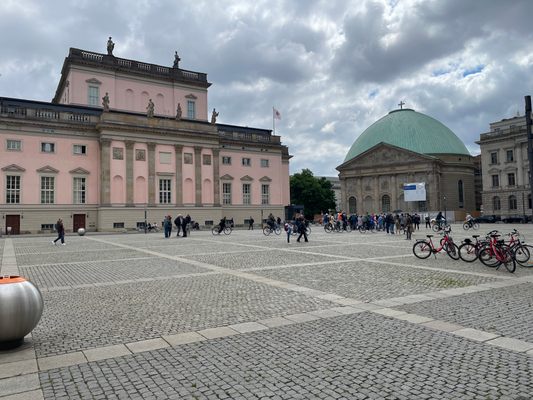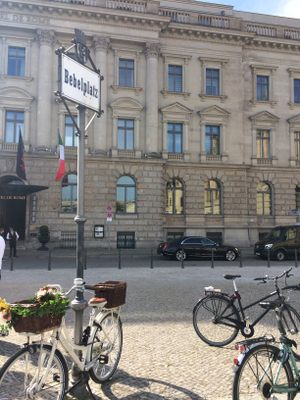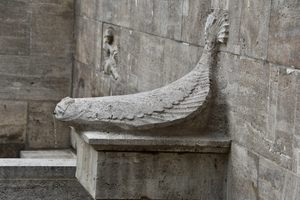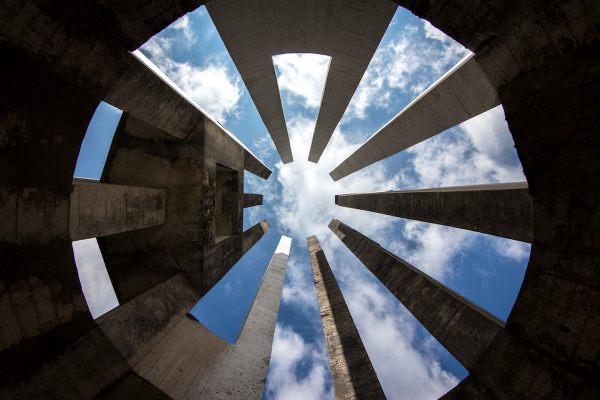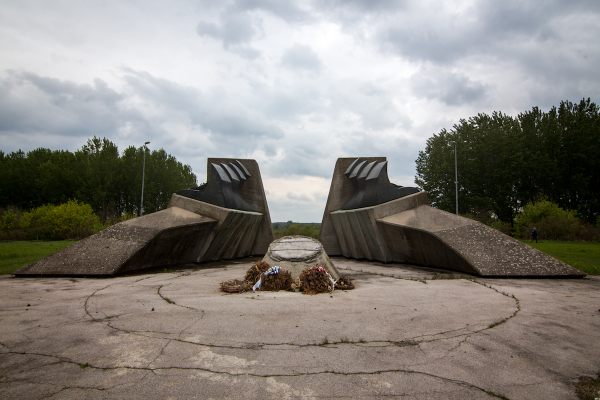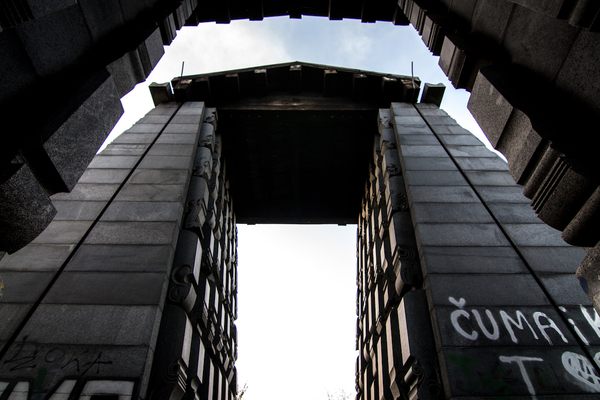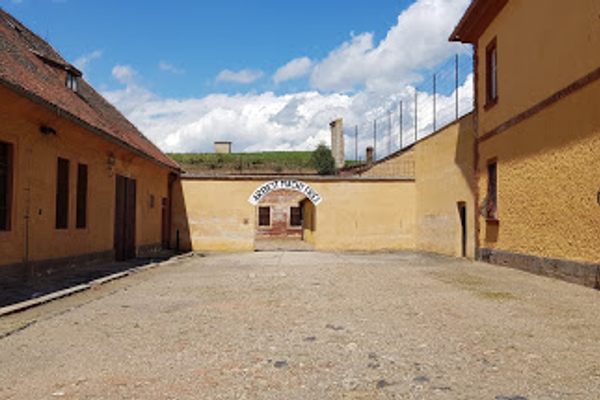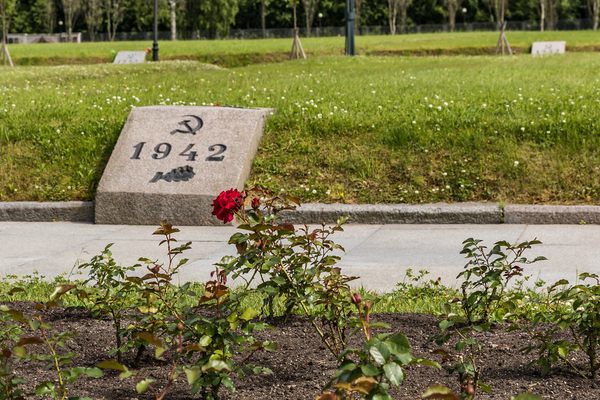About
"That was only a prelude, there where they burn books, they burn in the end people." - Heinrich Heine, 1820.
These are the sobering words that grace the bronze plaque you will find at your feet in the center of Bebelplatz Square. Nearby, a pane of thick glass replacing the pavement acts as a window into a subterranean room. In this room is bookshelf after bookshelf—enough shelf space to store 20,000 tomes, every single one hauntingly empty. Israeli artist Micha Ullman created the installation, and called it "Library."
Much of Europe still bears the scars of the Nazi regime, and the Bebelplatz (formerly known as Opernplatz) is no different. Many of the buildings (now restored) that bordered the square were destroyed during the Battle of Berlin in WWII, but the shadow that hangs over Bebelplatz originated with an event that happened earlier, when many in Berlin was still enamored with the Nazi Party, and the idea of a "pure" culture.
On May 15th, 1933, a call to students to take nationwide action against "The Un-German Spirit" and purge the universities of "Jewish intellectualism" rang out from the Main Office for Press and Propaganda of the German Student Union. Students in several university towns answered the call, and in an act of solidarity that would foreshadow the very dark days ahead, close to 25,000 books were destroyed. Opernplatz was now to be known as the location of one of the most famous book burnings in history.
A crowd of over 40,000, including Joseph Goebbels himself, chanted, gave speeches, and sang as thousands of books written by Germans and non-Germans alike went up in flames. Jack London, Karl Marx, Hemingway, and countless others turned to ashes as Goebbels bellowed on and on about purity in German culture. Some of the persecuted authors were actually present to witness the destruction of their work, including author Erich Kästner—who despite the trauma of witnessing this assault on free-thinking, was lucky...he left the country in self-exile before he suffered the fate of many of his contemporaries—death camps and execution.
Today the square reflects the new world of Berlin—the buildings have been restored, and the square is once again filled with happy people, music, and laughter. It was even given a new name, Bebelplatz, to help with the fresh start. But there is no erasing the night of censorship that took place here, and there are reminders all around. Along with the Library installation, the square has mounted several plaques as well as a giant monument shaped like a stack of books—impenetrable to fire, and larger than life.
Related Tags
Know Before You Go
The large sculpture shaped like a stack of books was only a temporary exhibit, displayed as part of the sculpture boulevard "Walk of Ideas" during the football world cup from May to September 2006. It is no longer at this location.
Confusingly, the squares on both sides of the state Opera House are signposted "Bebelplatz." The book burning memorial is to be found in the larger, paved square in front of the university.
Community Contributors
Added By
Published
June 9, 2013






